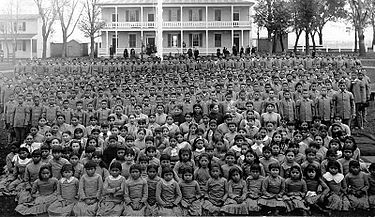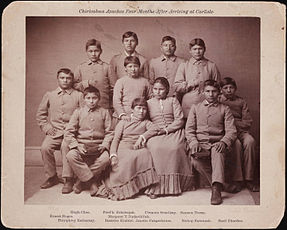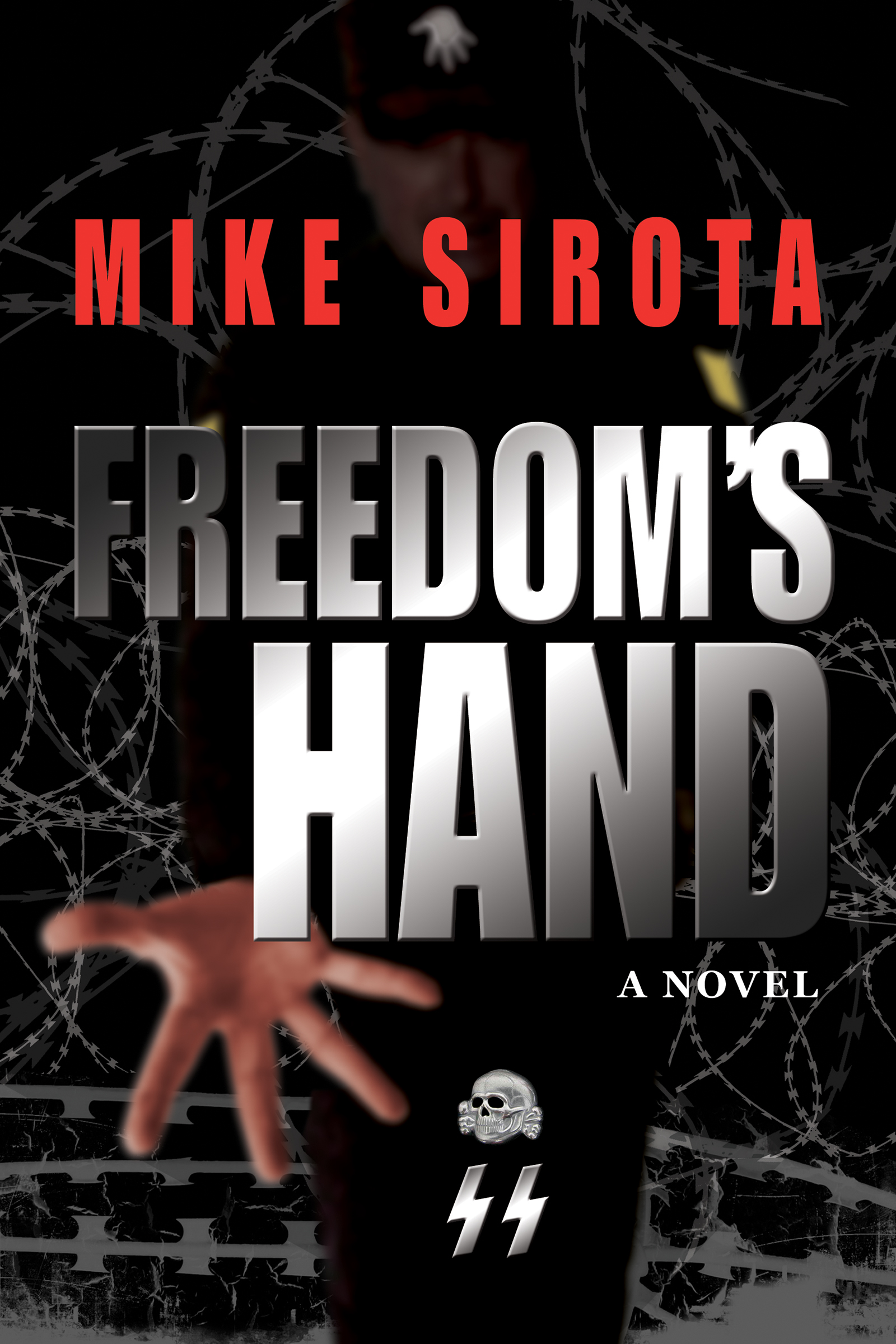Does that title offend the living crap out of you? It did me, believe it. I didn’t make it up; it is attributed to a United States Army officer in the late nineteenth century. More on that shortly. The line would become the buzz phrase for many non-reservation Native American boarding schools—these representing one of the darkest chapters in this country’s history with regard to its abominable treatment of the indigenous people—those who were here first.
Long before the advent of the boarding schools, Euro-Americans were set on forcing their ways on the people that they called “Indians.” As far back as the early seventeenth century—not long after Europeans first settled here—a priest in the Society of Jesus told the chief of a tribe in what is now Maryland that he wanted “…to extend civilization and instruction to his ignorant race, and show them the way to heaven.” This sort of hubris extended all through the colonial period.

Fr. Junipero Serra
The eighteenth century brought the Spanish missionaries, led by Father Junipero Serra. (See my post, “California Genocide.”) As he established his string of missions and attempted to “educate” the poor savages, he couldn’t help but think, “When I saw their general behavior, their pleasing ways and engaging manners, my heart was broken to think that they were still deprived of the light of the Holy Gospel.” He then tried to convert all the Indians he encountered to Christianity.
In the nineteenth century, westward expansion brought white America to the Great Plains and beyond, which brought about decades of what became known as the Indian Wars. Subsequent subjugation of all Native American tribes led to their confinement on reservations, which brought more Christian missionaries bound and determined to turn them from their heathen ways. They set up their schools where the Indians now lived.
The first non-reservation Native American boarding school, the Carlisle Indian Industrial School in Pennsylvania, was founded in 1879 by Richard Henry Pratt, a military officer who had fought in the Indian Wars. Pratt’s philosophy was evident in a speech that he gave: “A great general has said that the only good Indian is a dead one, and that high sanction of his destruction has been an enormous factor in promoting Indian massacres. In a sense, I agree with the sentiment, but only in this: that all the Indian there is in the race should be dead. Kill the Indian in him, and save the man.”
In other words, let us abuse and defile an entire culture.

Carlisle students around the turn of the century.
Carlisle served as a model for numerous off-reservation boarding schools, many of which were operated by religious organizations and supported by government funding. Children were taken from their homes—oftentimes by force, against the wishes of their parents—and sent to the schools, which did their best to kill the Indian inside them. Their hair was shorn (a source of humiliation for boys from many tribes); they wore uniforms; they were given Americanized names; they could not speak their own language; they were “encouraged” to become Christians.
Discipline in these boarding schools was harsh. Physical, emotional, even sexual abuse was not uncommon. There were many reports of children being starved, beaten, and confined. A 1928 survey determined that infectious diseases were widespread at the boarding schools from poor nutrition due to lack of funding, as well as overcrowding, poor sanitation, and hard labor. The survey also noted that the death rate for Native American children in boarding schools was more than six times that of any other ethnic group. And for many who made it to adulthood, alcoholism and suicide were not uncommon.

A group of fierce, proud Apaches a few months after immersion at a boarding school.
A 1960s government report stated that the majority of teachers in boarding schools believed that their role was to “civilize” Native American children, not educate them. Discipline and punishment were still the keys.
Fortunately, this and other surveys led to the passage of the Indian Self-Determination and Education Assistance Act of 1975. This took the emphasis away from boarding schools and put it on community schools. The large majority of non-reservation Indian boarding schools shut down in the 1980s and ’90s. Few remain today, and those that do, such as the Sherman Indian High School in Southern California, embrace their heritage and culture while preparing students for their future in this multi-cultural world. Let us hope that “Kill the Indian” remains a part of the dark past.
OLDER THAN AMERICA
A haunting film titled, Older than America addresses the dark side of Native American boarding schools and their role in cultural genocide. Georgina Lightning wrote and directed this 2008 movie, and she also stars in it as Rain Many Lightnings O’Rourke. The excellent cast includes Academy Award nominee Bradley Cooper (Silver Linings Playbook) and the outstanding First Nations (Canada) actor, Adam Beach (Windtalkers, Smoke Signals), among others.

Georgina Lightning
Rain, a schoolteacher on the Fond du Lac reservation in Minnesota, is troubled by visions from a nearby eerie Indian boarding school, now shut down. Terrible atrocities happened there decades ago when Rain’s mother, now institutionalized and practically comatose, attended the school. As Rain, with the help of her cop fiancé (Beach) and a seismologist (Cooper), draws closer to the truth, she also learns that there are others who will stop at nothing to ensure that the past remains buried.
For Georgina Lightning, this was a story that needed to be told. Her father had attended an Indian boarding school, and while he never talked about it when she was a child, his violent outbursts often troubled her. He committed suicide when Lightning was eighteen. Subsequently she set out to learn more about his past, which led her to the boarding school that he attended. There, she found a large cemetery on the grounds, with countless headstones of children that had died at the school. The idea for her story emerged from that, and as you’ll see, the cemetery is a key plot point in Older than America.
Jacqueline and I have seen numerous contemporary Native American films. Older than America ranks as one of the best.
FREEDOM’S HAND
I’ve received some positive early feedback on my newly released thriller, Freedom’s Hand. Here is some of it:
“I read Freedom’s Hand from start to finish, without putting it down, because I had to know what happened to the Lowe family and to the Commander. I won’t give that away, but I do have to say that I’m still contemplating the deeper truths running through this thought-provoking story. I highly recommend this engrossing book, which will stay with you even after you finally do put it down.”
“What if the evil ideology of the Holocaust were able to repeat itself? Mike Sirota paints a picture of how the brutality of a modern day concentration camp in America would  be. At times I found parts of the book difficult to read. At the same time it was just as difficult to put down. I highly recommend this book.”
be. At times I found parts of the book difficult to read. At the same time it was just as difficult to put down. I highly recommend this book.”
“Just finished Mike Sirota’s new book, Freedom’s Hand. It was a great read. This book is not the type he normally writes. I found it hard to put down. It is about a present day concentration camp in the U.S. Chilling and unforgettable. A must read.”
Freedom’s Hand is available in eBook and paperback. Let me know what you think.
ON THE AIR
I will be yakking it up on Garrett Miller’s blogtalkradio show next Monday, August 19th, at 7 p.m. (Pacific time) We’ll talk about writing in general, Freedom’s Hand in particular, and anything else that listeners would like to discuss. Hope you can tune in. I believe Garrett archives his broadcasts, so you can listen to it anytime afterward.

Amazed you are aware of the Sherman High School in Riverside. You really know your stuff!!!!! Our daughter, Kati went to Dickinson School of Law in Carlisle, PA so I have been to that location. The cemetery there is a sad sight. Filled with the tombstones of little ones who never made it back to the res. Keams Canyon, AZ is another location, used mostly for Navajo and Hopi children. Lot’s of fights and near wars over that one. Will try to tune in to Garrett Miller show. Hope you are in good voice.
Thanks. Pat. Can’t imagine how many tombstones there are at Carlisle.
The voice is getting stronger…hopefully in time for Monday.
As was noted in your prior post/replies regarding “California Genocide”, the winners are the ones who write the history books. They rarely include the self-incriminating incidents like these. Of course, any time the Catholic Church is involved, well…both past and current history speaks for itself on that one.
The movie “Older Than America” is on Netflix so I watched it during a long lunch break today. It was a good movie, on its own, as well as being a sad reminder of the terrible fate suffered by those children who were made to believe they were ‘bad’ simply because of who they were born to be. Thank you for bringing it to our attention. Hopefully others will watch it and learn a little more. (It doesn’t hurt that there are some good-looking guys in it, as well, and I’m not talking about Cooper!)
It also brought to mind a movie I just learned about this week, “The Act of Killing”. It’s about the atrocities committed in Indonesia when the Sukarno government was overthrown in 1965. I have only seen a few clips from it, but it is downright horrifying. In it, the actual perpetrators of mass murder freely admit what they did, including creating reenactments of their deeds at the same sites, which is utterly bizarre.
The most chilling thing I’ve seen, so far, is one of them showing off his cha-cha dancing skills on the same rooftop that was once covered in the blood of his victims…after he demonstrates how he killed people by wrapping wires around their throats, rather than beating them to death, because it was less bloody to clean up afterwards.
And these people are still in power today and have never paid any price for their genocidal actions. So, Mike, if you ever want to write a horror story about something ‘different’ again, I can suggest one place you could look for material.
Congratulations on the positive responses to your latest release!! You deserve them. I’ll be tuned in on Monday night to hear your interview.
The Indonesia story is horrifying! As I said, Hate Never Dies. That’s one horror story I think I’ll pass on with regard to writing. Thanks as always, Kate, for your insights.
There is also the Phoenix Indian School, which was open from 1891 until 1990, when the feds ordered it shut down. It served mostly as a boarding school for high school students. http://en.wikipedia.org/wiki/Phoenix_Indian_School
If I recall, the Heard Museum there in Phoenix offered a display about that school when I visited some years ago. Thanks for mentioning it.